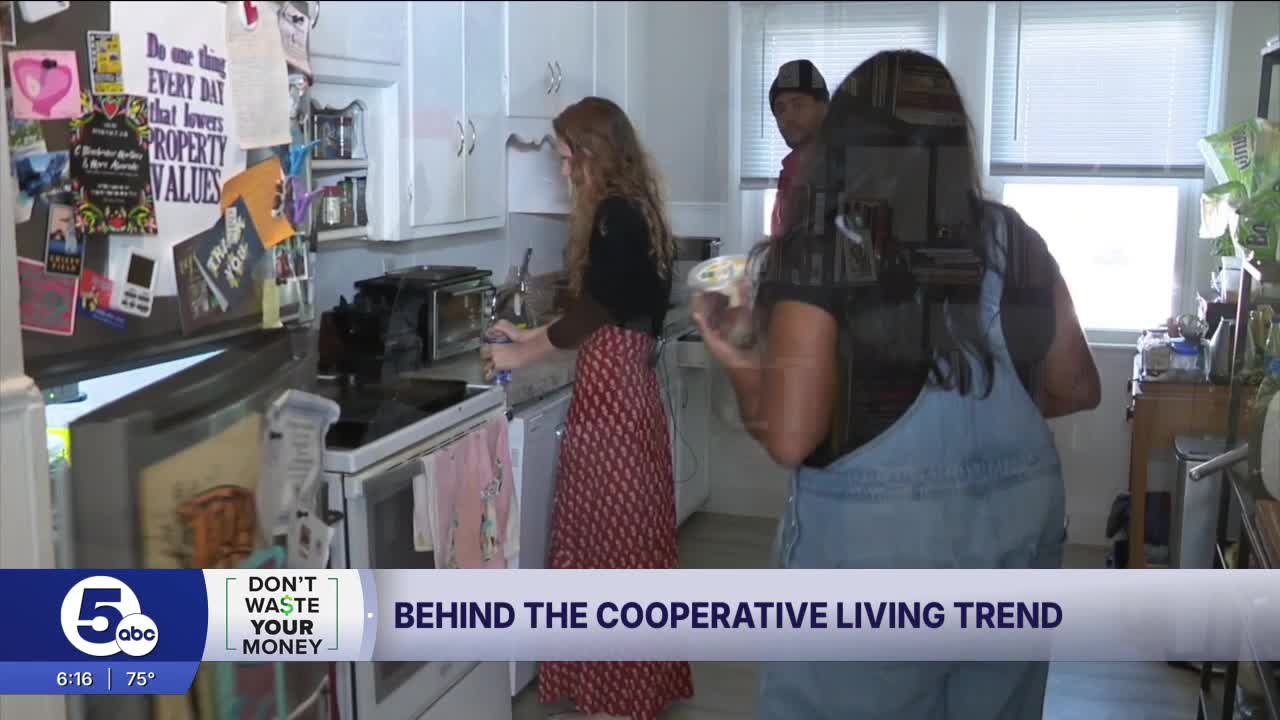CLEVELAND — Three Cleveland residents are living together under one roof. They share bills, meals and responsibilities, but they don’t call themselves roommates.
“Everybody who lives there has a stake in how we live and how we do things in different ways,” said Prerna Agarwal.
Agarwal, along with Rachel Cannon and Coop Nordquist, is part of a co-op household. Cooperative living goes beyond simply splitting rent. In their home, food, chores and finances are handled collectively.
“We socialize all of our food and utilities. Do shopping together. And our rent is not split evenly among the three of us. We do a sliding scale and every month it becomes a conversation of what folks can contribute,” Cannon said.
Cannon has lived this way for more than a decade.
“But I’m 30 now and I’m still doing it and I still have no intentions of stopping,” she said.
The group says communication is at the center of their lifestyle.
“It’s a lot of tough conversations but if you’re open and earnest and willing to have them. It can be really beautiful what you setup,” Nordquist said.
Although the idea may seem new, cooperative living has long been a common practice in other cultures. In the United States, it’s becoming increasingly popular in cities such as New York and San Francisco, and is now also gaining traction in Cleveland.
Rob Fischer, the Grace Longwell Coyle Professor in Civil Society at Case Western Reserve University, said the draw is clear.
“Ultimately everybody would [be] saving some cost under this model and potentially gaining connection with more folks not part of their biological family,” Fischer said.
Shana Kim, a real estate advisor with Engel & Völkers, said that it is one way to address a national housing shortage while also combating social isolation.
“It’s a weird metric of success in this country. Where it’s like … well you go… you move by yourself… you move to a new city for a new job. You’re all alone. And that’s like considered success in some way,” Agarwal said.
Only a handful of co-op groups exist in Cleveland, though more have appeared in Cincinnati and Columbus.
“It’s hard to live right now. And like living with other people and sharing values and talking through things. It’s just that much easier,” Nordquist said.
Kim said that before entering this sort of agreement, it's good to have some tools in place. Before moving in, make sure to discuss:
- Finances: How will rent, utilities, and groceries be divided? Is there a sliding scale or fixed share? Put agreements in writing.
- Decision-making: Will the group use consensus, majority vote, or rotating leadership for house rules and expenses?
- Chores and responsibilities: Who cleans, shops, cooks, or manages bills? Create a schedule to prevent conflict.
- Privacy vs. community: Decide what’s shared (meals, spaces, vehicles) and what’s personal.
- Conflict resolution: Have a plan for addressing disagreements before they escalate.
- Legal structure: Some co-ops operate informally, others form legal entities or partnerships. Understand the risks and protections.
- Exit strategy: What happens if someone leaves unexpectedly? Set clear terms so others aren’t left with unpaid bills.
Kim said that while real estate professionals can't offer legal advice, they can be a good guide in helping get things into place.





